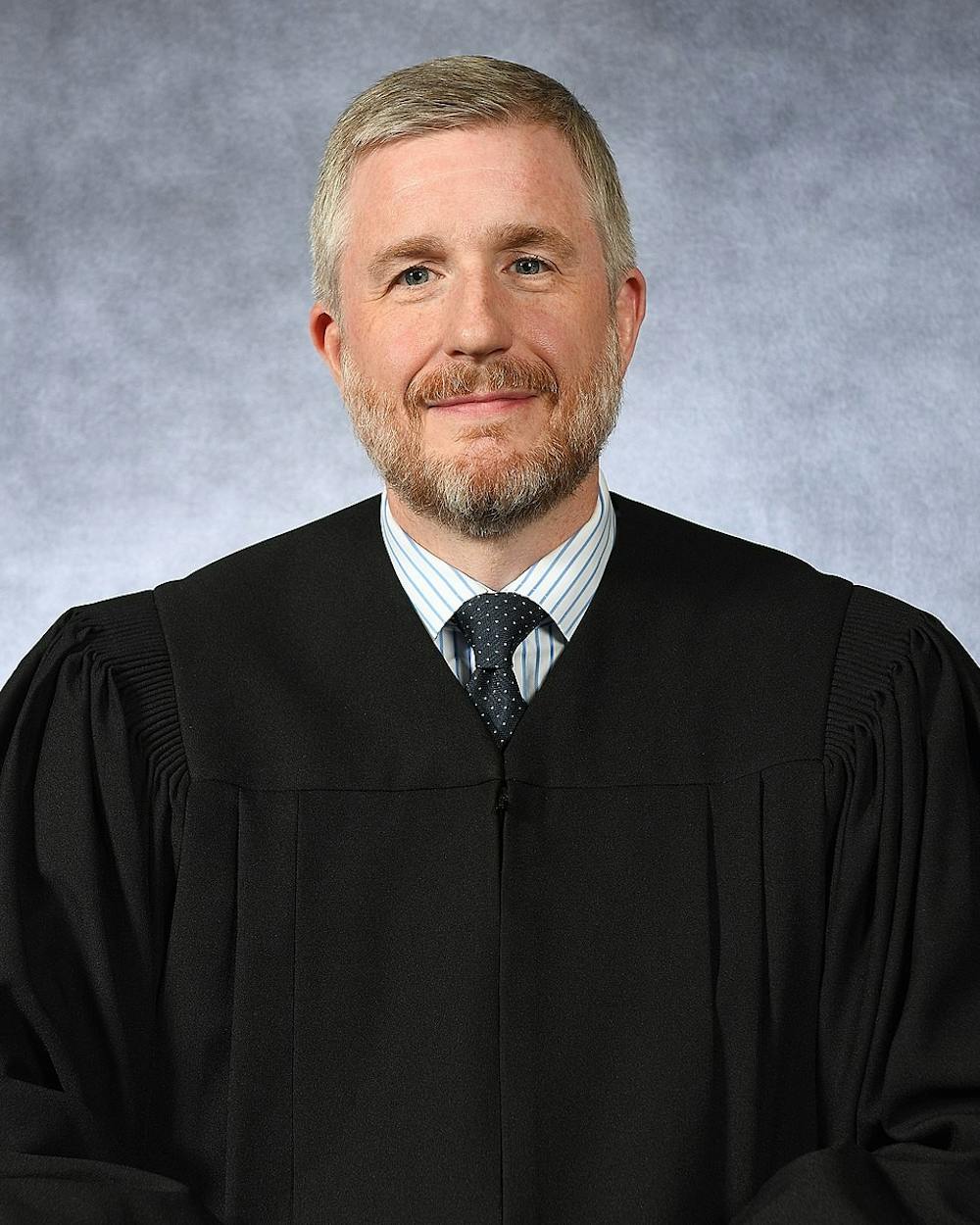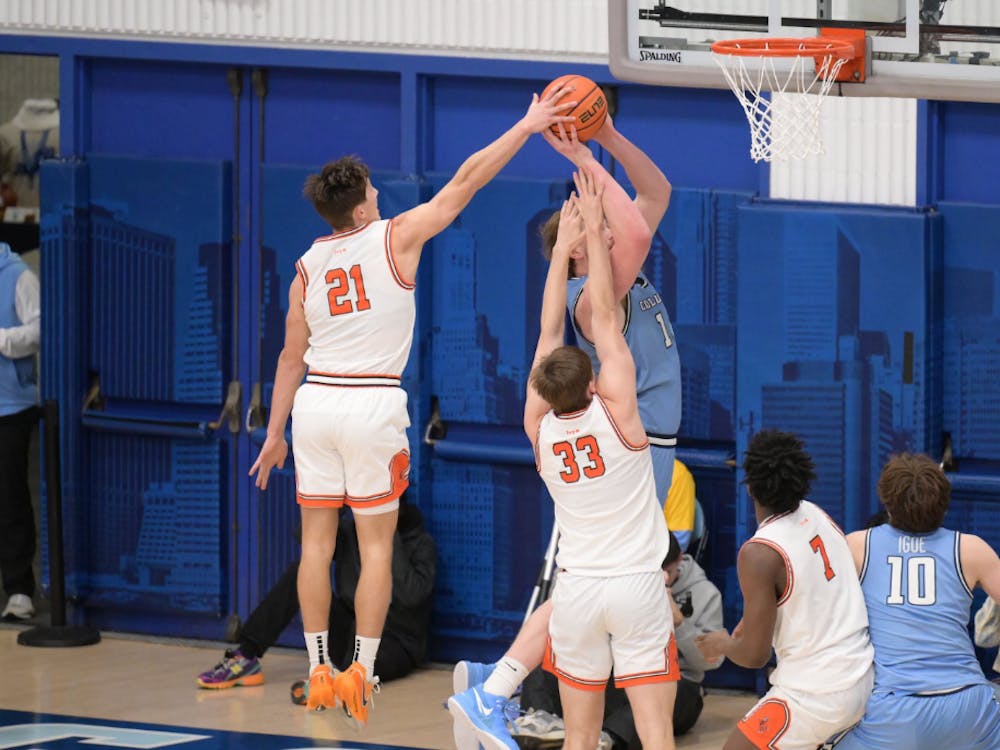Judge Paul B. Matey of the Third Circuit U.S. Court of Appeals critiqued fellow federal judges and discussed his views on the roles of originalism and natural law in constitutional interpretation at a campus event organized by the Princeton Federalist and Pre-Law Societies on Monday, Nov. 7.
The Third Circuit includes New Jersey, Pennsylvania, Delaware, and the Virgin Islands. Matey was confirmed in March 2019 after an appointment by former U.S. President Donald Trump.
During the event, which was moderated by Politics lecturer Thomas Howes, Matey said that many federal judges aspire to the jurisprudence of Robert Bork and the late Supreme Court Justice Antonin Scalia: “As many judges want to think of themselves as the next Scalia, there are few. There may be none.”
He added that what sets Bork and Scalia apart from those who aspire to their roles is that “they were academics before they were judges. Their comfortable center was the future of ideas.” Accordingly, Matey added, questions of the place of natural law and originalism in interpreting the Constitution are best suited to “the professors and the scholars,” not federal judges.
Matey also discussed the role of federal judges in decisions around race-conscious admissions and affirmative action, an issue that the Supreme Court is tackling this cycle, with cases brought against Harvard University and University of North Carolina at Chapel Hill (UNC) on the docket.
“My first answer would be that the role of scholars to investigate,” Matey responded. He did not specifically address the example of race-conscious admissions, but said that such issues require an originalist perspective.
Later in the event, one student asked about a spate of recent controversies, in which a number of Trump-appointed judges have stated that they will refuse to hire law clerks who studied at Yale Law School.
Matey responded, saying that he is “intrigued by the debate that is going on regarding discourse and civility and the exchange of difficult ideas in the classroom.” He cited Harvard, Notre Dame, George Mason, University of Pennsylvania, and Columbia as law schools from which he hires clerks, stating that his “personal preference in hiring law clerks is to work with universities that I have relationships with, and I am privileged to know professors at some extraordinary universities.”

He added, “I haven't hired anyone from Yale, because I don’t know anyone at Yale.”
He also suggested that Yale Law School should reconsider the structure of their faculty and administration, as well as “the structure of the relationships with judges.”
Matey also encouraged students in attendance to attend law school, saying that the “horror stories” they hear about law are “just nonsense.”
“There are few decisions outside of my personal life that I can say I made better than the decision to go to law school,” he added on his own experience. “I find it to be an inspiring profession, where you associate with tremendous people from all walks of life. And most importantly, you have the opportunity to do something that few of us would otherwise get, which is to provide assistance to someone at a time of need.”

He emphasized that, regardless of whether students work “with giant corporations or small businesses, whether you work for individuals in a crisis, or nations in controversies, you have the opportunity every day to do good.”
Matey attended Seton Hall Law School and clerked for New Jersey District Court Judge John C. Lifland and Judge Robert Cowen of the United States Court of Appeals for the Third Circuit. Before being appointed a Third Circuit Judge for the Court of Appeals by Trump, he served as General Counsel, Senior Vice President, and Secretary at University Hospital in Newark, N.J. He worked closely with former N.J. Governor Chris Christie, serving as Senior Counsel and Deputy Chief Counsel. Matey has been a member of the Federalist Society for 25 years.
The Princeton Federalist Society and Pre-Law Society hosted Matey for this discussion in Robertson Hall Bowl 002 at 6 p.m. on Nov. 7.
Olivia Sanchez is a News Contributor for the ‘Prince.’ Please send any corrections to corrections@dailyprincetonian.com.








